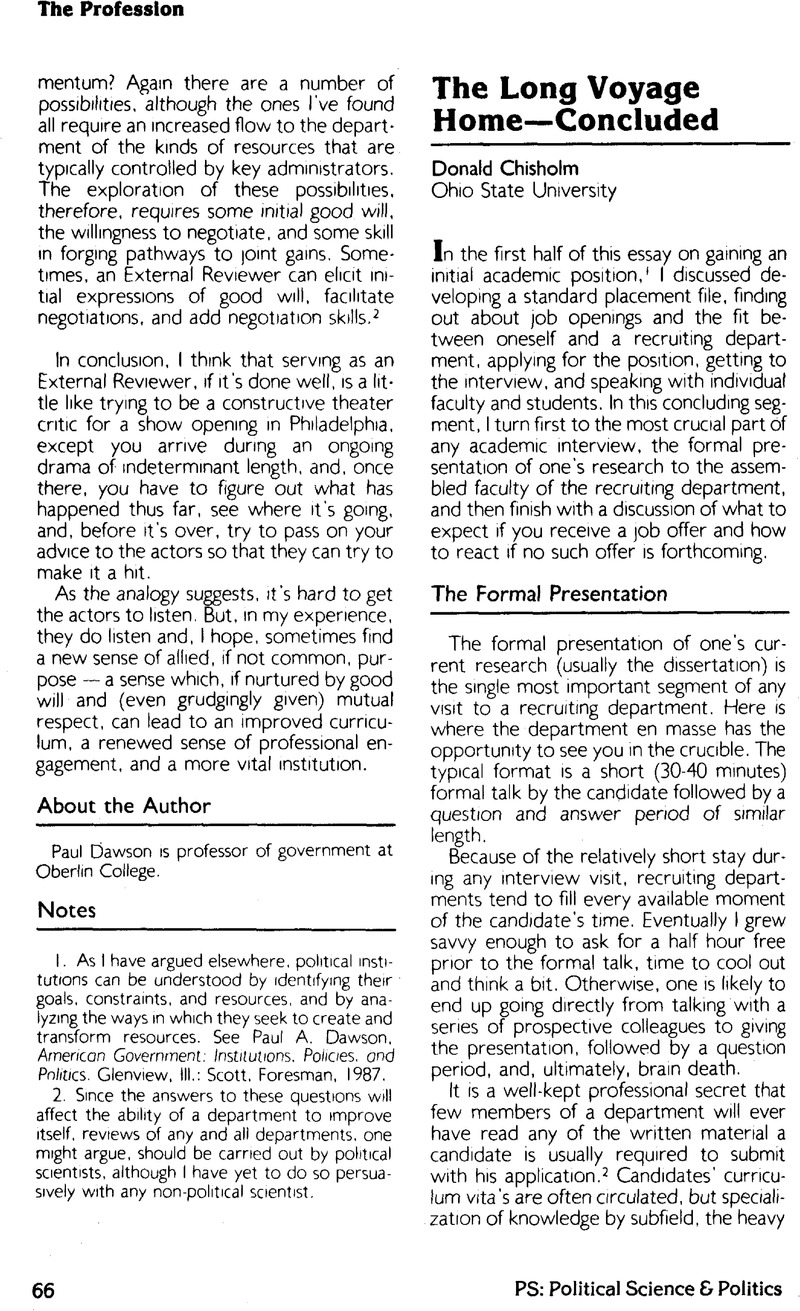No CrossRef data available.
Published online by Cambridge University Press: 02 September 2013

1. See “The Long Voyage Home Begun,” PS (Fall, 1988), pp. 901–907 Google Scholar.
2. I am aware of several smaller departments in which all members read the material submitted by the candidates who come for interviews. This appears to be the exception rather than the rule.
3. Conversely, while you may begin to tire of your presentation after giving it a few times (I surely did), it may be worth resisting the temptation to radically alter it to make it more “interesting.” If it ain't broke, don't fix it.
4. The worst job talk I have ever had the misfortune to hear was one in which the candidate chose not to discuss his excellent dissertation, but to try out ideas related to new research. He came across as ill-prepared and incapable of rigorous thought.
5. Except, perhaps, to demonstrate that I had “prepared” for my presentation.
6. The Chronicle of Higher Education annually publishes a list of salaries for different ranks at American colleges and universities. This gives one at least a basic idea of the possibilities at any given institution.
7. For this one should ask Junior faculty, not the department chair!
8. The American Political Science Association's professional guidelines state that a candidate has two weeks to decide upon receipt of a offer.